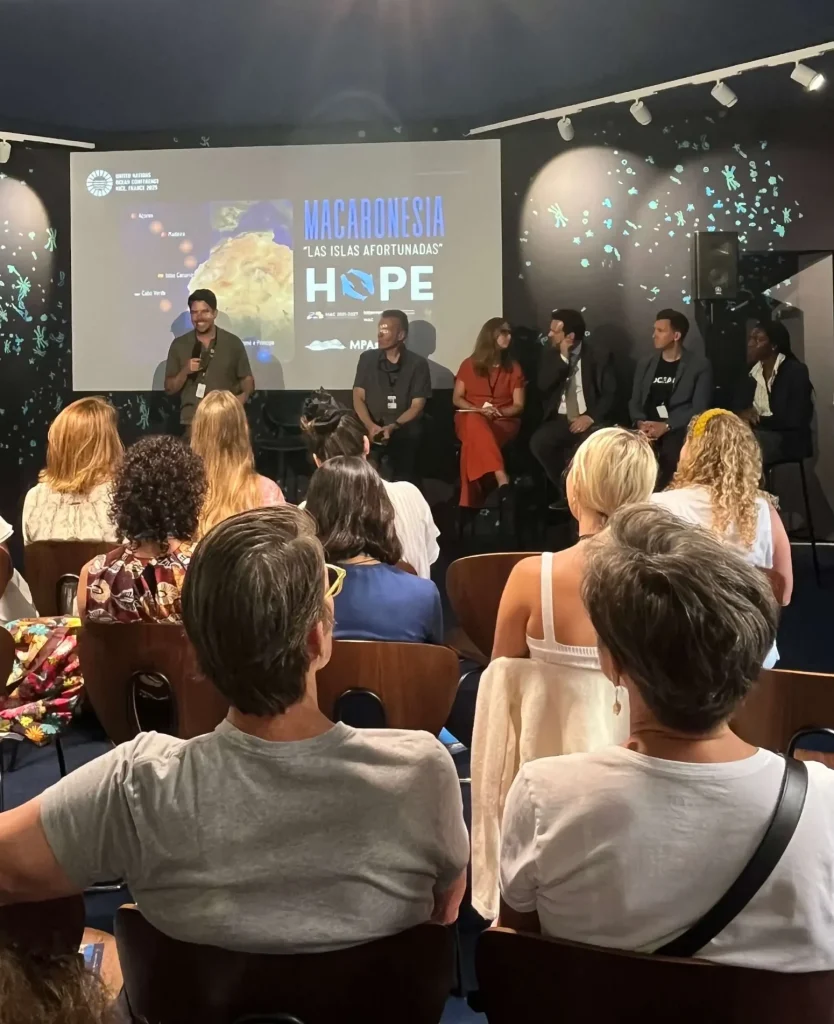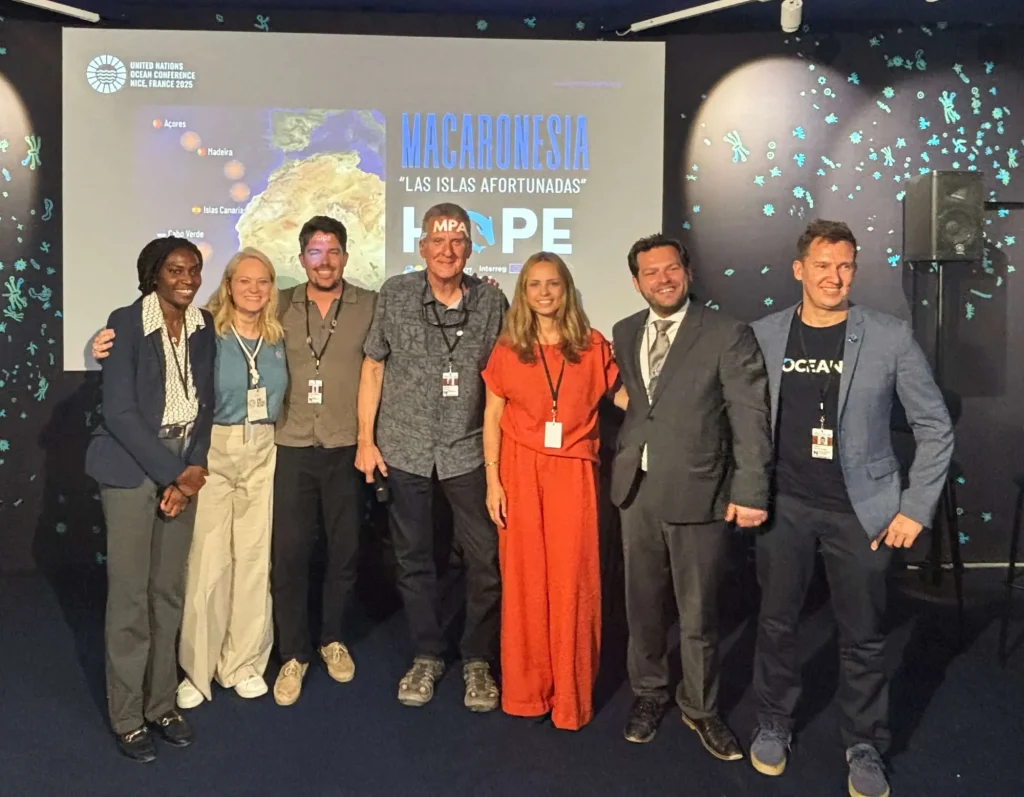ROUNDTABLE ON MACARONESIA AT THE UNITED NATIONS OCEAN CONFERENCE
In early June, the lead organization behind the HOPE Project, Innoceana, had the opportunity to attend the Third United Nations Ocean Conference (UNOC 3) in Nice. Co-hosted by France and Costa Rica, UNOC 3 is a global summit that brings together world leaders, scientists, NGOs, businesses, and civil society to drive urgent action for the protection and sustainable use of the ocean. The conference is a key platform for accelerating progress toward Sustainable Development Goal 14: Life Below Water. This edition of UNOC focused on building alliances, scaling innovative solutions, and aligning global efforts to restore ocean health in the face of climate change, pollution, overfishing, and biodiversity loss.
Innoceana had the honor of hosting a side event in the Green Zone (Public Zone) titled “Breaking Boundaries to Save the Ocean: Advancing Transnational Cooperation to Protect Biodiversity Hotspots.” The panel brought together key HOPE Project partners, including representatives from São Tomé and Príncipe, leading marine conservationists, and ocean advocates, to address the urgent need for collaborative, cross-border action in marine biodiversity protection.
The HOPE Project is dedicated to protecting and conserving the natural marine heritage of the Macaronesia region. By bringing together experts, scientists, and institutions, HOPE serves as a beacon of collaboration and innovation, driving efforts to safeguard one of the world’s most critical marine biodiversity hotspots.

Through expert insights and dynamic discussion, the roundtable explored how transnational cooperation, innovative conservation strategies, and scientific research can offer tangible solutions for marine biodiversity protection. The conversation also highlighted HOPE’s role as a model for cross-border marine conservation, demonstrating how strategic alliances can generate scalable and lasting impact. This session served as a powerful reminder of the need for global unity in protecting the planet’s most vulnerable marine ecosystems.
Key takeaways from the panel included the need to raise awareness about the Macaronesia region, which spans continents and serves both as a biodiversity hotspot and a migratory corridor for many species. The region was only rarely mentioned during this high-level conference, making the roundtable even more relevant and necessary.
In addition, the discussion emphasized that effective and inclusive cooperation with African countries in transnational projects remains a significant challenge. As highlighted by a representative from the government of São Tomé and Príncipe, the next major step is to establish robust and efficient monitoring systems for ocean conservation and protection.


